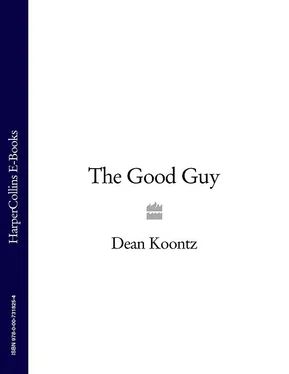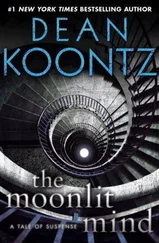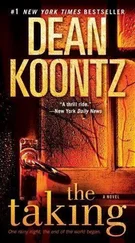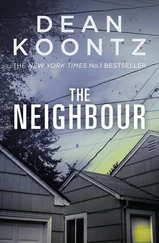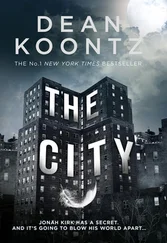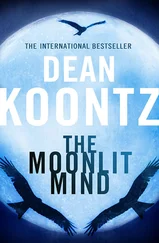In retrospect, the killer had realized that something about the encounter in the tavern had not been right. He had probably called a contact number for the skydiver.
Through the windshield, the kitchen looked warm and cozy. On a wall hung a rack of cutlery.
“You can’t freeze me out like this,” said Rooney.
“I’m not thinking about you,” Tim said, opening the door and getting out of the coupe. “I’m thinking about Michelle. Keep your neck out of this—for her.”
Carrying both coffee mugs, Linda exited the Ford from the driver’s door.
“Exactly how long ago did the guy leave?” Tim asked Rooney.
“I waited maybe five minutes before calling you—in case he might come back and see me on the phone, and wonder. He looks like a guy who always puts two and two together.”
“Gotta go,” Tim said, pressed END, and pocketed the phone.
As Linda took the mugs to the sink, Tim selected a knife from the wall rack. He passed over the butcher knife for a shorter and pointier blade.
The Pacific Coast Highway offered the most direct route from the Lamplighter Tavern to this street in Laguna Beach. Even on a Monday evening, traffic could be unpredictable. Door to door, the trip might take forty minutes.
In addition to a detachable emergency beacon, maybe the unmarked sedan had a siren. In the last few miles of approach, the siren would not be used; they would never hear the killer coming.
Turning away from the sink, Linda saw the knife in Tim’s fist. She did not misinterpret the moment or need an explanation.
She said, “How long do we have?”
“Can you pack a suitcase in five minutes?”
“Quicker.”
“Do it.”
She glanced at the ’39 Ford.
“It’s too attention-getting,” Tim said. “You should leave it.”
“It’s my only car.”
“I’ll take you wherever you want to go.”
Her green gaze was as sharp as a shard of bottle glass. “What’s in this for you? Now you’ve told me, you could split.”
“This guy—he’ll want to waste me, too. If he gets my name.”
“And you think I’ll spill it, when he finds me.”
“Whether you spill it or not, he’ll get it. I need to know who he is, but more important, I need to know who hired him. Maybe when you’ve had more time to think about it, you’ll figure it out.”
She shook her head. “There’s nobody. If the only thing in this for you is the chance I’ll figure who wants me dead, then there’s nothing in this for you.”
“There’s something,” he disagreed. “Come on, pack what you need.”
She glanced at the ’39 Ford again. “I’ll be back for it.”
“When this is done.”
“I’m going to drive it all over, to wherever there’s something left from those days, something you can still see that they haven’t torn down yet or desecrated.”
Tim said, “The good old days.”
“They were good and they were bad. But they were different.” She hurried away to pack.
Tim turned off the kitchen lights. He went down the hall to the living room, and he switched off those lights, too.
At a window, he pulled back a sheer curtain and stood watching a scene that had gone as still as a miniature village in a glass paperweight.
He, too, had been glassed-in for a long time, by choice. Now and then he had lifted a hammer to shatter through to something, but he had never struck the blow because he didn’t know what he wanted on the other side of the glass.
Having strayed from a nearby canyon, perhaps emboldened by the round risen moon, a coyote climbed the gently sloping street. When it passed through lamplight, its eyes shone silver as if cataracted, but in shadows its gaze was luminous and red, and blind to nothing.
Six
As if following the spoor of the now vanished coyote, Tim drove north. He turned left at the stop sign and headed downhill toward the Pacific Coast Highway.
He repeatedly checked the rearview mirror. No one followed them.
“Where do you want to stay?” he asked.
“I’ll figure that out later.”
Still in blue jeans and a midnight-blue sweater, she had added a camel-colored corduroy jacket. She held her purse on her lap, and her carryall was in the backseat.
“Later when?”
“After we’ve seen the guy you can trust, the one who can trace that license-plate number.”
“I figured to go to him alone.”
“Aren’t I presentable?”
She was not as pretty as she had been in the photo, yet she struck him as somehow better looking. Her hair, such a dark brown that it seemed black, had been shorter than this, and calculatedly shaggy, when she had stood before the DMV camera.
“Totally presentable,” he assured her. “But with you there, he’ll be uneasy. He’ll want to know more of what it’s about.”
“So we tell him whatever sounds good.”
“This isn’t a guy that I lie to.”
“Is there one?”
“One what?”
“Never mind. Leave it to me. I’ll shine him up something he’ll like.”
“Not you, either,” Tim said. “We walk the line with this guy.”
“Who is he—your dad or something?”
“I owe him a lot. He’s solid. Pedro Santo. Pete. He’s a robbery-homicide detective.”
“So we’re going to the cops, after all?”
“Unofficially.”
They headed north along the coast. Southbound traffic was light. A few cars rocketed past them in excess of the speed limit, but none featured an emergency beacon.
To the west, the house-crowded bluffs descended to unpopulated lowlands. Beyond coastal scrub and wide beaches, the Pacific folded the sky down to itself at a black horizon.
Under the night-light of the sentinel moon, ruffled hems of surf and a decorative stitching that fringed the incoming waves suggested billows of fancy bedding under which the sea turned restlessly in sleep.
After a silence, Linda said, “The thing is, I don’t much like cops.”
She stared forward at the highway, but in the wash of headlights from approaching traffic, her unblinking eyes seemed to be focused on some other scene.
He waited for her to continue, but when she lapsed into silence again, he said, “Is there something I should know? Have you been in trouble sometime?”
She blinked. “Not me. I’m as straight as a new nail that never met a hammer.”
“Why does that sound to me like there was a hammer, maybe a lot of hammers, but you didn’t bend?”
“I don’t know. I don’t know why it sounds that way to you. Maybe you’re always inferring hidden meaning when none is implied.”
“I’m just a bricklayer.”
“Most car mechanics I know—they think deeper than any college professor I’ve ever met. They have to. They live in the real world. A lot of masons must be the same.”
“There’s a reason we call ourselves stoneheads .”
She smiled. “Nice try.”
At Newport Coast Road, he turned right and headed inland. The land rose ahead, and behind them the sea was pressed down under a growing weight of night.
“I know this carpenter,” she said, “who loves metaphors because he thinks life itself is a metaphor, with mystery and hidden meaning in every moment. You know what a metaphor is?”
He said, “‘My heart is a lonely hunter that hunts on a lonely hill.’”
“Not bad for a stonehead.”
“It’s not mine. I heard it somewhere.”
“You remember where. The way you said it, you remember. Anyway, if this Santo is sharp, he’ll know I don’t like cops.”
“He’s sharp. But there’s nothing not to like about him.”
“I’m sure he’s a great guy. It’s not his fault if sometimes the law has no humility.”
Tim sifted those words a few times but was left with no meaning in his net.
Читать дальше
